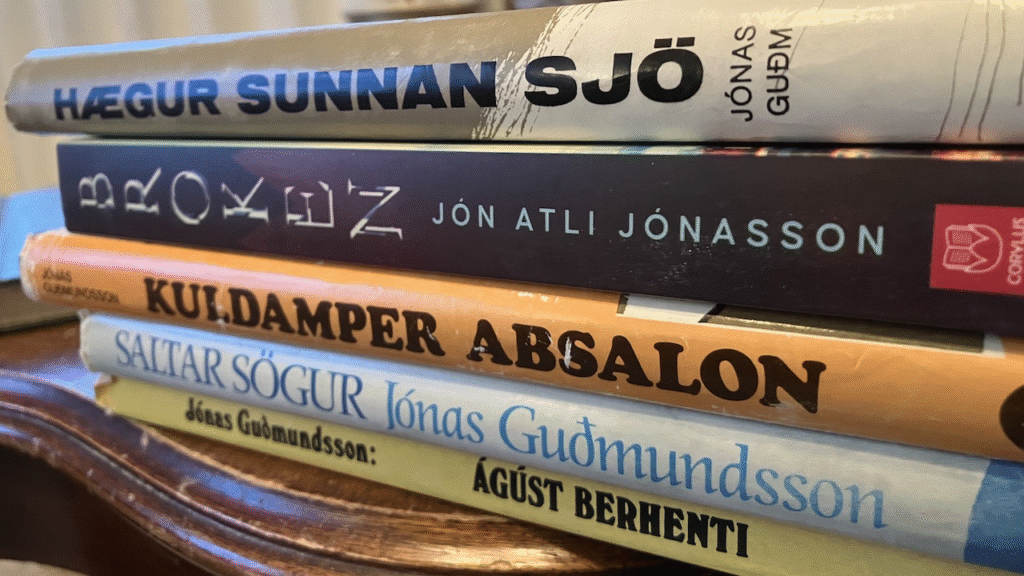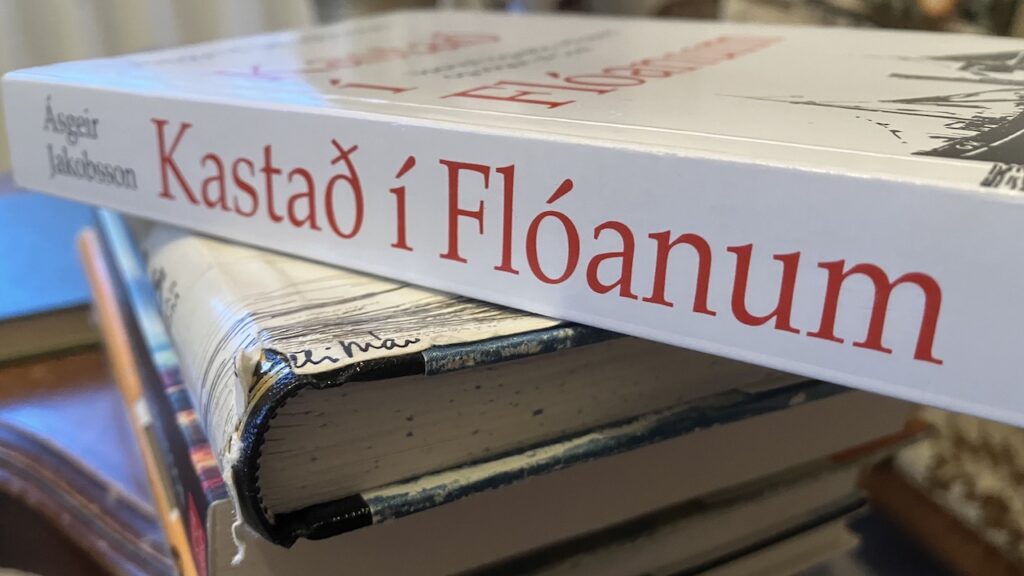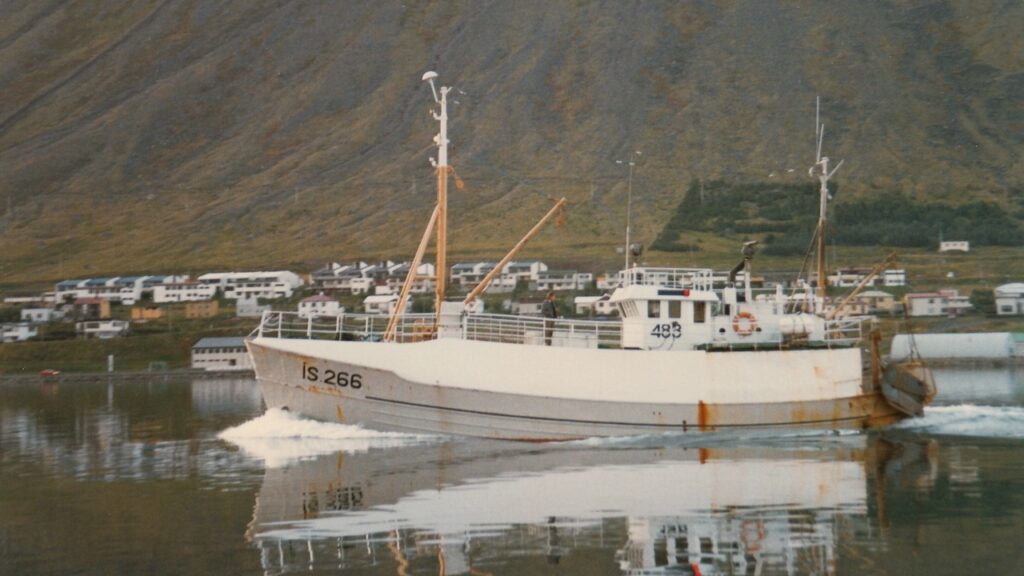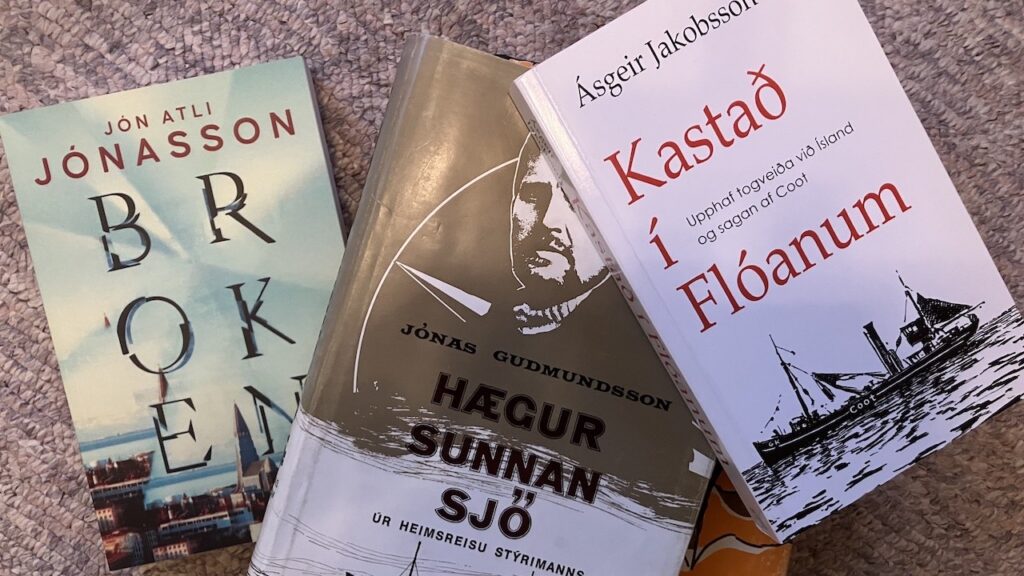Small World
Going back a few years… When I went to Iceland back in the last century, before mobile phones, email and social media, even before faxes, reading wasn’t always easy. English books were fairly few and far between.
It didn’t take long to get through pretty much the whole of the local library’s English-language shelves, and it took quite a while before I could read enough Icelandic to struggle through the local paper.

At work there was a stack of books and magazines in the canteen, and one day when the old guys were hogging the conversation – as they generally did – I picked up one of these books, opened it at random and started reading. The buzz of being able to understand around 85% of it and to be able to figure out the remaining 15% from the context was a memorable thrill. I could do this!
Because work was a net loft and the gossip was mostly in some way or other to do with fishing and boats, I already had a lot of the obscure vocabulary needed to read a few chapters of Kastað í Flóanum (Shooting Away in the Bay) by Ásgeir Jakobsson. There were more of this author’s books there and I gradually worked through these tales of seafaring exploits and biographies of worthy shipowners.
Ásgeir Jakobsson was a remarkable gentleman, a writer, journalist, commentator and a bookseller, after having been a seaman in his younger years.

A year or two on and I was working on a shrimp boat, Guðný ÍS-266, owned by Siggi Sveins and skippered by Jón P. There wasn’t a lot to do… There were two or three long tows a day, and it took around an hour to haul and shoot, and another hour to get the catch down below and iced in boxes. The old man took the two day tows and I took the night tow.
It was such an easy way of working that I was getting through a paperback a day and English books were running dangerously low. One day I picked up one of the books in the bunk for’ard that served as a makeshift library, and started reading where some previous reader had left a bookmark.
This was Hægur Sunnan Sjö, by Jónas Guðmundsson, an account of the author’s time living in Copenhagen, until a berth came up as a mate on a Danish tramp steamer delivering cargoes to some far-flung ports in Europe, the Caribbean and a few other places. The style and the tone were captivating and as soon as I reached the end, I went back to the beginning and read the chapters prior where the bookmark had been placed.

Later on I found a few other books by Jónas, including Kuldamper Absalon, a novel about the crew of a Danish coaster calling at ports in Greenland. This was before the internet, children, and there was no such thing as a search engine, but I found out that Jónas had been a Coastguard officer, as well as an author and an artist, and that he had died only a year or two before I picked up his books.
When I was asked to translate a novel called Brotin (Broken) by Jón Atli Jónasson, I didn’t know much about the author, other than that he was a respected screenwriter and playwright, and that he had side-stepped into writing a crime series. The book’s something of a beast, not one you put down easily. I completed the translation, we went through the edits via emails, and it wasn’t until I was in Reykjavík a few months later that we were able to meet for the first time in a noisy city centre coffee shop.
We chatted, and Jón Atli mentioned that his father had written about fisheries and seafaring.
‘Jónas… Which Jónas was that?’ I asked.
´Guðmundsson.’
I genuinely shivered.
‘Jónas Stýrimaður?’
It’s difficult to describe the feeling, almost of a circle being closed.
Not that I ever met either of them, but these gentlemen were my first friends in print in Icelandic, Ásgeir Jak and Jónas Stýrimaður (Jónas the Seafarer).
Today Ásgeir’s son Jakob runs one of Iceland’s livelier and well-respected independent publishing companies, Ugla Útgáfa, which has published several of my books in Icelandic translation – and I translate Jónas’s son’s books into English.
Small world.
